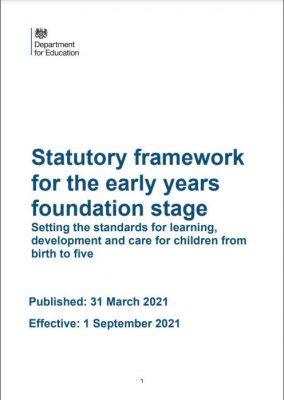Early Years Foundation Stage
The Complete Guide to the EYFS
Early Years Foundation Stage - What is the EYFS?
The Early Years Foundation Stage (EYFS) is a framework that sets the standards for the learning, development, and care of children from birth to five years old in the United Kingdom. It is a statutory framework that all early years providers must follow, including childminders, preschools, nurseries, and reception classes in primary schools.
The EYFS was first introduced in 2008 and revised in 2012, with the aim of providing a consistent and coherent approach to early childhood education across the country. It outlines seven areas of learning and development, which are further divided into 17 early learning goals that children are expected to achieve by the end of their reception year in primary school.

EYFS Statutory Framework
Within the Early Years Foundation Stage Statutory Framework, you have 3 major sections. These are:
- Safeguarding and welfare requirements – what you must do to keep children safe and promote their welfare.
- The learning and development requirements – specific areas of learning and development which should shape the activities and experiences you offer.
- Assessment – how you measure children’s progress and feedback to parents or carers.
All three of these are important because they help ensure that children learn and develop and are kept healthy and safe whilst at their childcare setting.
You can download a copy of the latest EYFS at the bottom of this article.
Areas of Leaning in the EYFS
According to the Early Years Foundation Stage, there are 7 major areas of learning.
The 3 prime areas which are:
- Personal, social and emotional development
- Physical development,
- And communication and language
Plus 4 specific areas, which are:
- Mathematics,
- Literacy,
- Understanding the world
- and Expressive arts and design.
Personal, Social and Emotional Development
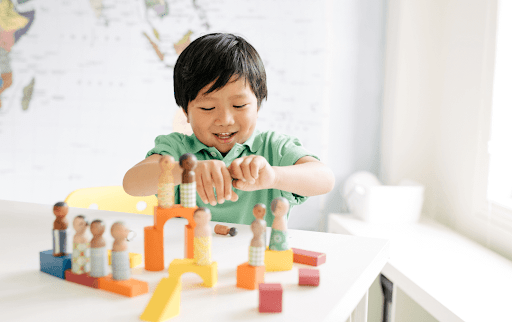 Personal, social, and emotional development is one of the seven areas of learning and development outlined in the Early Years Foundation Stage (EYFS) framework. It refers to the ways in which young children develop their sense of self, form relationships with others, and regulate their emotions and behavior.
Personal, social, and emotional development is one of the seven areas of learning and development outlined in the Early Years Foundation Stage (EYFS) framework. It refers to the ways in which young children develop their sense of self, form relationships with others, and regulate their emotions and behavior.
This area of development is essential for children to become confident, self-aware, and able to form positive relationships with others. It includes three main aspects:
Personal Development – Children develop a sense of self and begin to understand their own feelings and needs. They also learn to take care of themselves, such as dressing and feeding themselves, and become more independent.
Social Development – They learn how to form relationships with others, such as making friends and playing cooperatively. They also learn about the social norms and values of their culture and community.
Emotional Development – Children learn to regulate their emotions and express them appropriately. They develop empathy and understanding of others’ emotions, and learn to cope with difficult situations.
In the EYFS framework, providers are expected to support children’s personal, social, and emotional development by providing a safe and nurturing environment, promoting positive relationships with others, and providing opportunities for children to explore and express their feelings and emotions. This may include activities such as role-play, circle time, and group games that encourage cooperation and empathy.
Physical Development
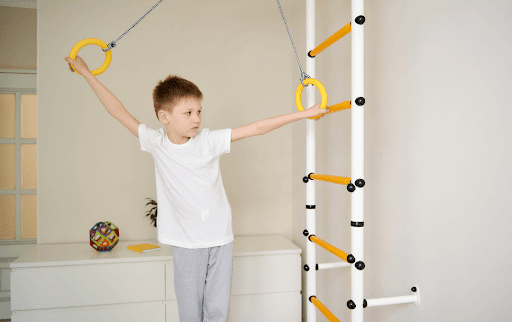 Physical development is when young children develop their gross and fine motor skills, and learn to move and use their bodies effectively.
Physical development is when young children develop their gross and fine motor skills, and learn to move and use their bodies effectively.
This is crucial for children to be physically active, healthy, and coordinated. It includes three main aspects:
Moving and Handling – They develop their gross motor skills, such as crawling, walking, and running, as well as their fine motor skills, such as using scissors and pencils. They also learn to handle objects and tools effectively, such as throwing and catching balls.
Health and Self-care – Learning about healthy habits, such as washing their hands and brushing their teeth. They also develop their abilities to take care of themselves, such as dressing and feeding themselves.
Physical Development – Children develop their awareness of their own bodies and their abilities. They also learn about the benefits of physical activity and the importance of staying active.
Providers are anticipated to support children’s physical development by providing a safe and stimulating environment for physical play and activities, promoting healthy habits and self-care routines, and encouraging children to engage in physical activities such as dancing and sports.
Communication and Language
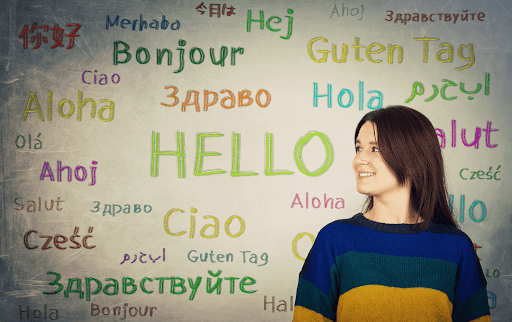 This refers to the ways in which young children develop their abilities to communicate and understand language, both verbal and non-verbal.
This refers to the ways in which young children develop their abilities to communicate and understand language, both verbal and non-verbal.
The development of this particular area is crucial for children to acquire robust literacy skills and to effectively participate in social interactions with others. It includes three main aspects:
Listening and Attention – Children learn to listen attentively to what others are saying and to respond appropriately. They also learn to concentrate and focus on particular tasks.
Understanding – They also develop their abilities to understand both spoken and non-verbal communication. They learn to understand and follow instructions, and to respond to questions and requests appropriately.
Speaking – Children learn to communicate their ideas, thoughts, and feelings using a range of vocabulary and sentence structures. They also develop their ability to express themselves fluently and accurately.
Expectation is to support children’s communication and language development by providing a language-rich environment, encouraging communication and language development through play and interactions, and promoting literacy skills through activities such as reading and storytelling.
Mathematics
 The acquisition of skills and knowledge in comprehending and applying mathematical concepts is crucial in the development of young children. The development of this aspect holds great significance in shaping problem-solving and critical thinking abilities in children, which are crucial for them to comprehend the surrounding world. This aspect comprises two primary components:
The acquisition of skills and knowledge in comprehending and applying mathematical concepts is crucial in the development of young children. The development of this aspect holds great significance in shaping problem-solving and critical thinking abilities in children, which are crucial for them to comprehend the surrounding world. This aspect comprises two primary components:
Numbers – As part of their development, children gain comprehension of numbers and counting, and acquire the knowledge of using mathematical symbols and concepts like addition, subtraction, and multiplication. They also learn to recognize and compare shapes, sizes, and patterns.
Space, Shape, and Measure – Children develop their understanding of space, shape, and measure, and learn to use mathematical language and concepts to describe and compare objects and quantities. They also learn about time and money, and how to measure and estimate lengths, weights, and volumes.
According to the EYFS framework, providers are obligated to facilitate the mathematical development of children by offering a variety of opportunities for them to explore mathematical concepts and ideas through play and activities. In addition, providers must provide an assortment of materials and resources that children can utilize in their mathematical learning. Furthermore, children should be encouraged to engage in problem-solving and critical thinking to further advance their mathematical development.
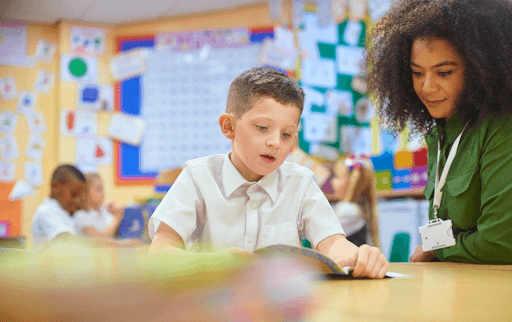 This pertains to the manners by which young children enhance their skills in reading, writing, and communicating effectively with others through language. This is a fundamental aspect for children to prosper in their future education and life. It encompasses two primary components;
This pertains to the manners by which young children enhance their skills in reading, writing, and communicating effectively with others through language. This is a fundamental aspect for children to prosper in their future education and life. It encompasses two primary components;
Reading – Children enhance their skills to comprehend and interpret a variety of texts, including but not limited to storybooks and informational literature. They learn to recognize and read letters, words, and sentences, and to understand the meaning of what they are reading.
Writing – Children develop their abilities to write and express their thoughts and ideas using a range of writing tools, such as pencils, pens, and keyboards. They learn to form letters and words, and to use punctuation and sentence structure to convey meaning.
The EYFS framework requires providers to assist children’s literacy development by creating an environment that is rich in language, encouraging reading and storytelling, offering opportunities for writing and mark-making, and promoting communication with others using language.
Understanding the World
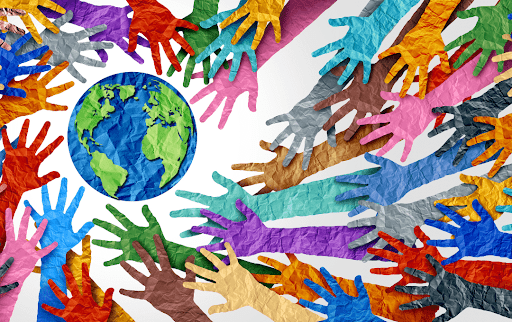 The development of young children’s knowledge and understanding of the world, encompassing their comprehension of people, places, and the environment, is known as Understanding the World. This developmental area is imperative in allowing children to comprehend their experiences and interact competently with their surroundings. Understanding the World comprises two primary components;
The development of young children’s knowledge and understanding of the world, encompassing their comprehension of people, places, and the environment, is known as Understanding the World. This developmental area is imperative in allowing children to comprehend their experiences and interact competently with their surroundings. Understanding the World comprises two primary components;
People and Communities – They learn about the people and communities around them, including their own families, cultural backgrounds, and social norms and values. They also learn about different occupations and roles, and about the diversity of people and communities in the world.
The World – They develop their understanding of the physical world, including natural phenomena such as weather, plants, and animals. They also learn about the built environment, including homes, buildings, and infrastructure, and about the impact of human activity on the environment.
Expressive Art and Design
 Expressive Arts and Design in young children refers to the means by which they develop their creativity and imagination through diverse forms of artistic expression. This developmental area is crucial in allowing children to express themselves and explore their emotions and ideas through various art forms. The development of Expressive Arts and Design comprises two primary aspects;
Expressive Arts and Design in young children refers to the means by which they develop their creativity and imagination through diverse forms of artistic expression. This developmental area is crucial in allowing children to express themselves and explore their emotions and ideas through various art forms. The development of Expressive Arts and Design comprises two primary aspects;
Exploring and using media and materials – Children enhance their skills to investigate and utilize various materials and resources, such as paint, clay, and digital media, to articulate their concepts and emotions.
Being imaginative – By participating in imaginative activities like storytelling and role-playing, as well as crafting their own art forms and designs, children nurture their creativity and imagination.
Characteristics of Effective Learning
The characteristics of effective learning also form an important part of the EYFS.
Characteristics of Effective Learning describe behaviours children use in order to learn.
The main characteristics of learning according to Early Years Foundation Stage are:
- playing and exploring – this involves children investigating and experience things and ‘have a go.’
- Active learning – where children concentrate and keep on trying if they encounter difficulties and enjoy achievements.
- Creating and thinking critically – children have and develop their own ideas, make links between ideas, and develop strategies for doing things.
The way a child engages with the environment and other people will help development and learning.
Does the EYFS matter for parents?
Yes, Early Years Foundation Stage is very important for parents. It helps create the standards that ensure all children’s safety.
It protects children while also assuring a safe and engaging learning environment. It places a responsibility on nursery staff to carry risk assessments and even administer medical products as needed.
EYFS makes it easy to improve the educational quality, while also offering children a large number of opportunities to express themselves and learn in an efficient way. They get to learn more about communicating, while also focusing on personal social and emotional development as well.
What are the main EYFS safeguarding and welfare requirements?
Every childcare provider needs to ensure that they take the necessary steps to ensure children are safe and protected. That’s why there are some very specific EYFS safeguarding and welfare requirements to take into consideration.
For example, there’s a lot of focus on child protection and health. Then there are other things like special education needs, and maintaining records and information. Managing behavior to prevent any unwanted behavior from spreading is also very important to keep in mind.
On top of that, it also comes down to finding the right practitioners that have experience with children. That means high staff qualifications, support, training and skills and maintaining the right staff to child ratios.
Having the right procedures that follow the Early Years Foundation Stage framework is extremely helpful, since it gets to prevent any possible issues and problems that can appear. This is why integrating the best procedures is so important.
The Early Years Foundation Stage framework is updated often, with the latest changes being from 2021. Those changes focused on improving the outcome of children. They did have a specific focus on the literacy and language outcomes for disadvantaged children. In addition, they were focused on lowering the teacher workload, while bringing in a more efficient way to help children.
Conclusion
The EYFS framework emphasizes the importance of play-based learning and providing children with a stimulating and nurturing environment to support their learning and development. It recognizes that children develop at their own pace and in their own unique way, and that parents and caregivers play a crucial role in supporting their children’s learning and development.
Early years age refers to the age range covered by the EYFS, which is from birth to five years old. This period is considered crucial for laying the foundation for future learning and development, and the EYFS framework provides a framework for early childhood education and care that is based on best practices and research.
The Early Years Foundation Stage (EYFS) is a statutory framework that sets the standards for early childhood education and care in the United Kingdom. It outlines the seven areas of learning and development, and provides a play-based and child-centered approach to learning and development for children from birth to five years old.
You can find out more about the EYFS Statutory Framework here: 2021 Update
